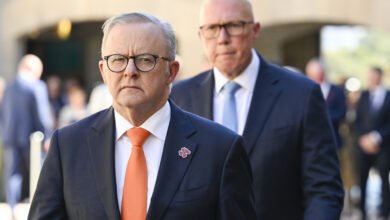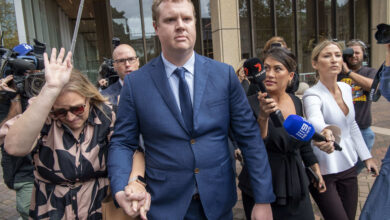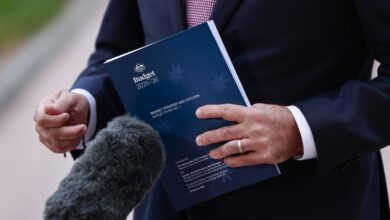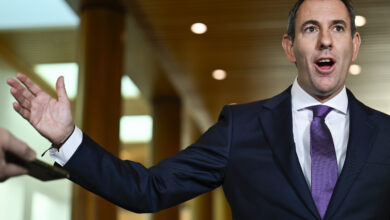Call for federal rescue of Tas health
Hospital staff protest at cuts to elective surgery and closure of beds. By Flynn Murphy
A Tasmanian government bid to slash $100 million from the state's health budget has renewed calls for a federal takeover of the system.
Nurses around Tasmania wore black armbands to work on October 24 to protest the cuts, which include about $21.6 million in cuts to elective surgery.
"We have already got 100 per cent occupancy," Neroli Ellis, the Australian Nursing Federation's Tasmanian branch secretary told Nursing Review. "We have people waiting up to two days for an acute bed, and now 100 beds are going to close."
"As nurses working 24-hours-a-day in the hospital system, we know exactly what these cuts will mean."
On October 4, Tasmania's Health Minister Michelle O'Byrne announced cuts of $8.5 million for the Northern Area Health Service, $10.7 million for the Southern Area Health Service, and $2.4 million for the North West Area Health Service
Ellis said this would translate to closures of 24 to 54 beds per hospital, the loss of about 100 FTE jobs, and increased strain on an already-struggling system.
"It's the equivalent of four wards closing. Two wards at the Launceston General Hospital, one ward at [the North West Regional Hospital at] Burnie and one ward at the Royal Hobart Hospital, as well as up to five Operating Theatres."
Ellis predicted the move would leave the Royal Hobart Hospital with 40 surgical beds, and said this was "just the beginning," as forward estimates for the next few years predict even greater cuts.
John Davis, president of the Australian Medical Association's Tasmanian branch (AMATAS), said squeezing elective surgery was a short-sighted move that would cripple the system in the long run.
"Put simply, if you give someone a hip replacement today they cease to be a burden on the health system. The longer you wait, the more the operation will cost," Davis said.
"If you don't do the hip replacement they continue going to their GP, and to their physiotherapist, and to their pharmacist, and to all kinds of other primary carers in order to access relief from their painful hip. Their quality of life continues to diminish and they end up actually costing the system at large a lot more."
Another concern is the possibility that Tasmania will fall behind national elective surgery benchmarks, which could disqualify it from federal funding under the agreement between the state and federal governments.
Davis blamed the funding cuts on a state government that can "only think about the next budget", and renewed calls for the federal government to step in and take over the system, which AMATAS has been campaigning for since May.
"The Tasmanian health system is in a state of crisis. We need one funder, so the cost-shifting and the blame shifting ceases."
Ellis agreed: "It's important that we have one bureaucracy, one system. We've had enough of the blame game."
Tasmanian-born independent MP Andrew Wilkie joined the calls for a federal takeover in a speech to the House of Representatives on October 12, saying the cuts would see "the most disadvantaged members of the community" pay for "years of financial mismanagement and policy incompetence."
But in media interviews, Federal Health Minister Nicola Roxon has repeatedly denied that the federal government will take over the state system, telling ABC Radio's The World Today that "every other state has stepped up to improve its services". A spokesperson for Roxon confirmed to NR that this remains the position of the department.
O'Byrne was unavailable for interview, but told NR in a statement that she supported a single funding model for the Tasmanian health system, "funded by the Commonwealth alone, by the State alone, or by all levels [of] government through a separate body established for the purpose."
While a stoush between the federal and state health ministers over the handling of the health budget has played out in the media, a spokesperson for O'Byrne confirmed that informal talks had taken place between them, and that a meeting would likely take place in coming weeks to discuss possible solutions to the crisis.
Davis stressed the urgency of the situation: "What we do know is that in Hobart, there are something like 1400 patients on the waiting list for a colonoscopy. Statistically, 70 of those patients have cancer. Another 400 have a premalignant condition - a legion that will turn into cancer. If you push those waiting lists out further, then you have got patients who we know have got cancer who are not going to get their procedures done in a timely fashion. That is a great concern, particularly if you are one of those patients."
Email: [email protected]




